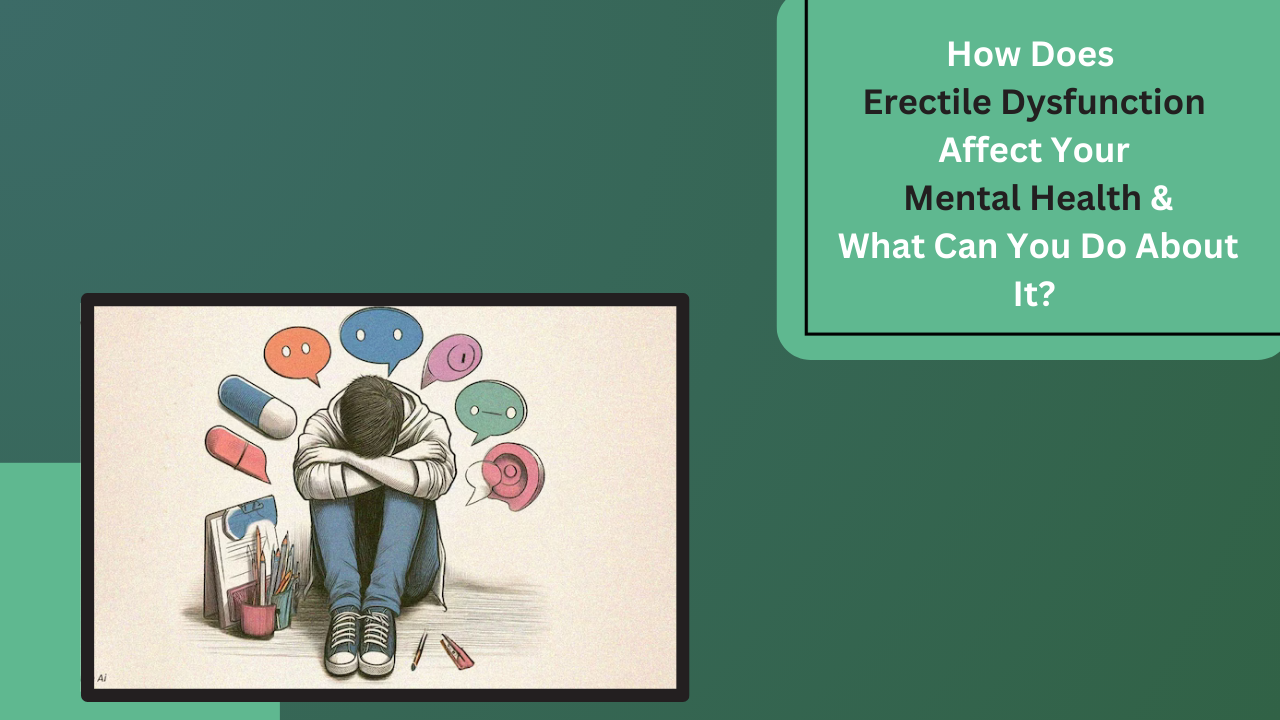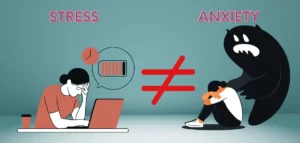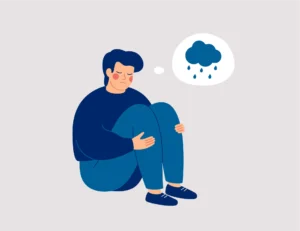How Does Erectile Dysfunction Affect Your Mental Health and What Can You Do About It?

Erectile dysfunction (ED) is typically defined as a physical condition in which men struggle to acquire or maintain a satisfactory erection for sexual engagement. However, its effects extend far beyond the bedroom, having a substantial impact on mental and emotional well-being. Understanding this relationship and exploring solutions can lead to more comprehensive and successful ED management.
The Mental Health Effects of Erectile Dysfunction
1. Stress & Anxiety
 The inability to achieve or sustain an erection can cause severe tension and anxiety. Men with ED frequently worry about their performance and how it affects their relationship. This tension can create a cycle in which anxiety about sexual performance exacerbates the condition, making it much more difficult to achieve an erection. Over time, this can result in chronic anxiety, which has an impact on general mental health and quality of life.
The inability to achieve or sustain an erection can cause severe tension and anxiety. Men with ED frequently worry about their performance and how it affects their relationship. This tension can create a cycle in which anxiety about sexual performance exacerbates the condition, making it much more difficult to achieve an erection. Over time, this can result in chronic anxiety, which has an impact on general mental health and quality of life.
2. Depression
 Feelings of inadequacy and low self-esteem can result from the frustration and disappointment caused by eating disorders. Men may perceive a loss of manhood or self-worth, which can lead to depressive symptoms. Depression can exacerbate sexual dysfunction, creating a vicious cycle that is difficult to stop.
Feelings of inadequacy and low self-esteem can result from the frustration and disappointment caused by eating disorders. Men may perceive a loss of manhood or self-worth, which can lead to depressive symptoms. Depression can exacerbate sexual dysfunction, creating a vicious cycle that is difficult to stop.
3. Relationship strain
 ED can disrupt romantic relationships, leading to feelings of humiliation or frustration among partners. A lack of communication regarding the issue can result in misconceptions and emotional distancing. This tension can reduce marital satisfaction and lead to additional psychological anguish for both spouses.
ED can disrupt romantic relationships, leading to feelings of humiliation or frustration among partners. A lack of communication regarding the issue can result in misconceptions and emotional distancing. This tension can reduce marital satisfaction and lead to additional psychological anguish for both spouses.
4. Social Withdrawal
 To avoid shame, men with eating disorders may avoid social events or intimate encounters. This withdrawal can lead to isolation and decreased social interaction, which can be detrimental to mental health. Feeling separated from friends and loved ones can worsen loneliness and melancholy.
To avoid shame, men with eating disorders may avoid social events or intimate encounters. This withdrawal can lead to isolation and decreased social interaction, which can be detrimental to mental health. Feeling separated from friends and loved ones can worsen loneliness and melancholy.
Addressing the Mental Health Impacts of ED
1. Open communication
Effective communication with a partner is critical for addressing the psychological impacts of ED. Openly discussing the matter can assist to decrease the condition’s stigma and embarrassment. It also enables partners to collaborate on problem solving and provide emotional support to one another. Communication can help to enhance relationships and reduce stress and anxiety associated with eating disorders.
2. Professional Counseling
Getting help from a mental health professional can be quite useful. Cognitive-behavioral treatment (CBT) can help address the negative thought patterns and emotional responses linked with eating disorders (ED). A therapist can also help individuals and couples develop communication skills and resolve relationship challenges.
3. Couples Therapy
Couples therapy can help manage the relational components of ED. A competent therapist can assist both couples in understanding the impact of eating disorders on their relationship and developing coping methods to deal with the emotional and psychological issues. This sort of treatment can promote intimacy and communication, allowing you to rebuild a strong and supportive relationship.
4. Stress-Management Techniques
Incorporating stress management skills into daily life can assist to mitigate some of the psychological effects of ED. Mindfulness, meditation, and relaxation activities can help reduce anxiety and enhance general well-being. Regular physical activity and a well-balanced diet can also help manage stress and improve mental health.
5. Education and support
Educating oneself about ED and its treatment options can help people gain control of their condition. Understanding that eating disorders are prevalent and not a reflection of personal failure might help lessen feelings of inadequacy. Joining support groups, whether online or in person, can create a sense of belonging and allow people to share their experiences and techniques for managing the disease.
6. Medical treatment
Addressing the physical aspects of eating disorders through medical treatment can also benefit mental health. Effective ED care, whether with oral drugs such as sildenafil (Viagra), tadalafil (Cialis), or other treatments, can help to lessen the tension and anxiety associated with the illness. Consulting with a healthcare expert to choose the best treatment option can result in enhanced sexual function and overall mental wellness.
7. Lifestyle Changes
Making beneficial lifestyle choices can benefit both your physical and mental health. Regular exercise, a good diet, and avoiding excessive alcohol and smoking can all improve general health and help control ED. These improvements can help boost self-esteem and alleviate the psychological burden that comes with the disease.
The importance of a holistic approach
Effectively addressing the psychological and medical aspects of eating disorders (ED) is crucial for mitigating their impact on mental health. A combination of medical therapy, psychological support, and lifestyle adjustments can lead to better results and a higher quality of life.
- Integrated Care: Collaborating with healthcare practitioners who understand the relationship between physical and mental health is critical. An integrated care strategy addresses all elements of ED, including medical treatment and psychological support.
- Personalized Strategies: Every person’s experience with ED is unique. Personalized techniques that take into account personal health, relationship dynamics, and mental health needs can help manage the illness more effectively.
- Ongoing Support: Regular check-ins with healthcare providers and mental health specialists can assist track progress and make any changes to the treatment plan. Ongoing support ensures that patients receive the care they require as they navigate their path with ED.
The Final Say
Erectile dysfunction is more than simply a physical problem; it also has serious consequences for mental health and emotional well-being. The stress, worry, and melancholy that come with eating disorders can affect many aspects of life, from intimate relationships to social interactions. Addressing the mental health consequences of ED necessitates a comprehensive approach that involves open communication, expert counseling, stress management, education, and proper medical care.
Individuals and their partners can enhance their mental health and live a more happy life by recognizing the psychological repercussions of ED and taking proactive actions to address them. A holistic approach to ED management can result in improved outcomes, not only in sexual function, but also in overall well-being and quality of life.
Category: Healthcare
